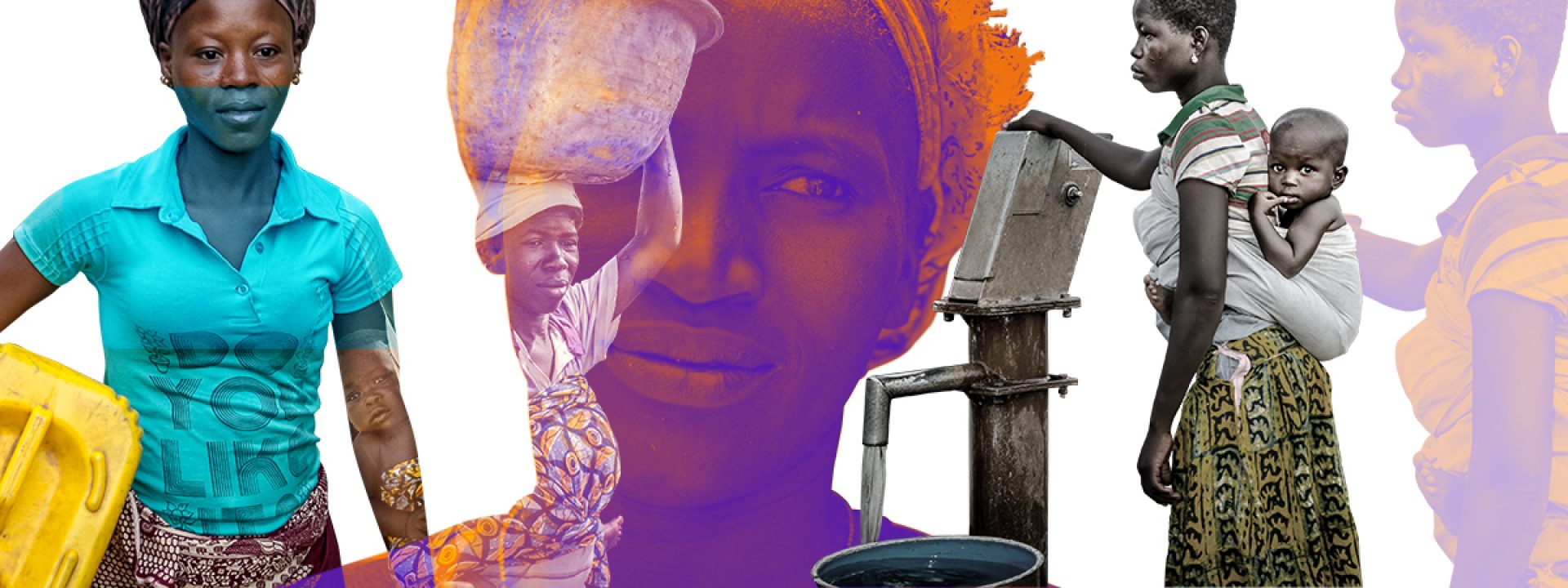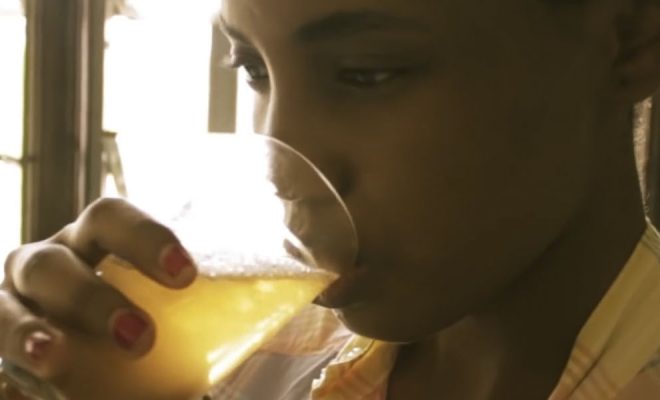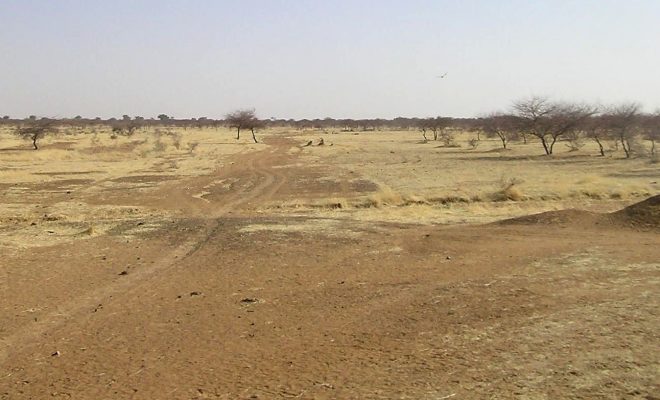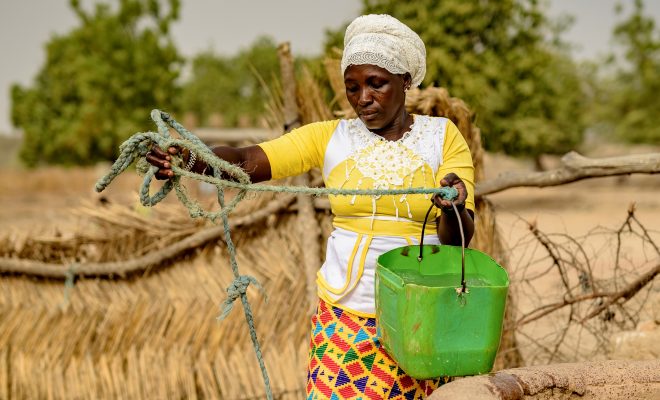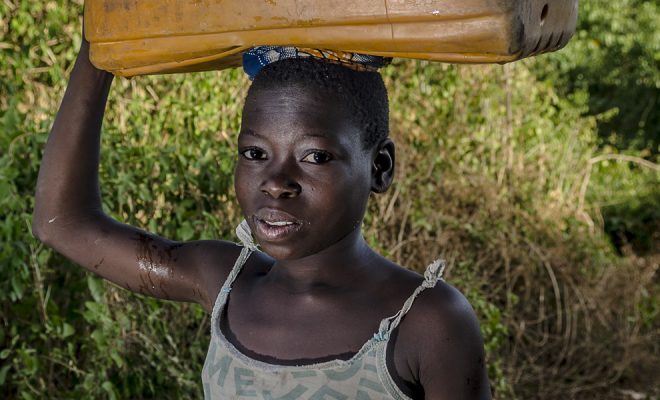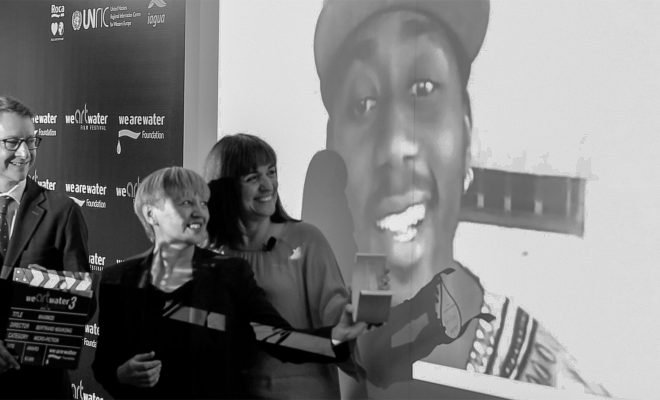
Mami Wata sells water on the streets of Yaoundé, the capital of Cameroon. She collects it from distant sources, which are often unsafe; she makes it drinkable by boiling it and stores it in bottles collected from the street, which she sterilizes beforehand. Then, she sells it on the capital’s crowded streets with her family.
She lives in a slum on the outskirts of the city, where her neighbors call her “the mother who sells water,” but her real name is Aline Assomo, and years ago, she lived in a nearby village farming the land and raising a few heads of cattle. Aline’s life was cut short in 2016 when a flood swept away her husband and washed away their house, destroyed their vegetable garden, and killed the livestock. In extreme poverty, she was forced to migrate to the city, like most affected in the region. Philomene Stephanie tells us part of her story in her short film Mami Wata, a shortlisted micro-documentary in the We Art Water Film Festival 5.
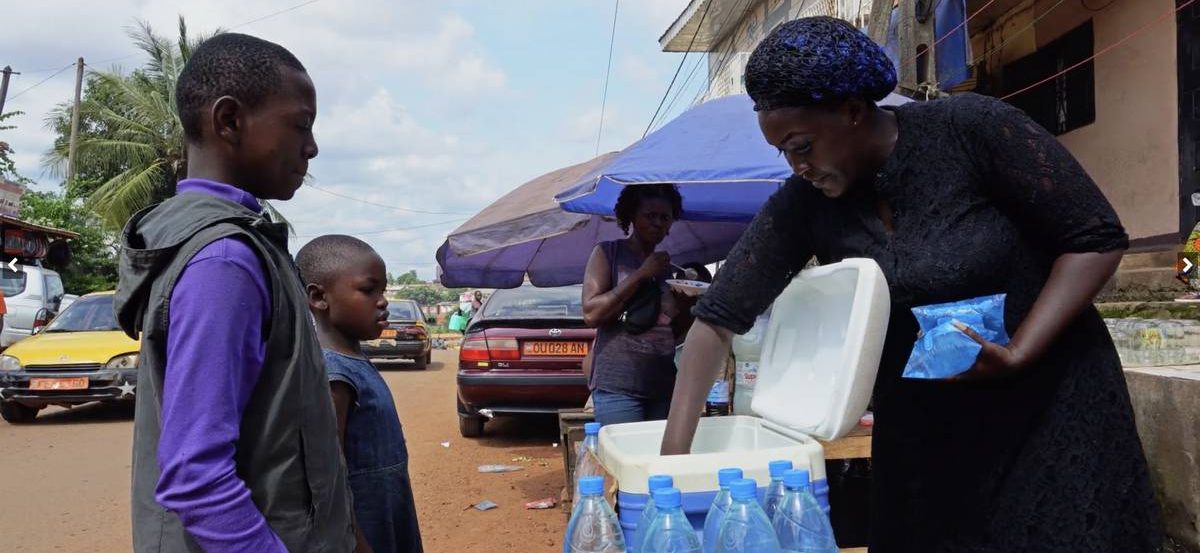
Mami Wata,the protagonist of the micro-documentary, lives in a slum on the outskirts of the city, where her neighbors call her “the mother who sells water”.
Mami Wata has a goal: to go back to her village, rebuild her home, and return to living off what the land gives her. She hopes to do so with the profits from her small family business. The lack of water in the city is a paradoxical ally: water cuts are frequent, and water rarely reaches many neighborhoods, and their inhabitants walk out into the street thirsty.
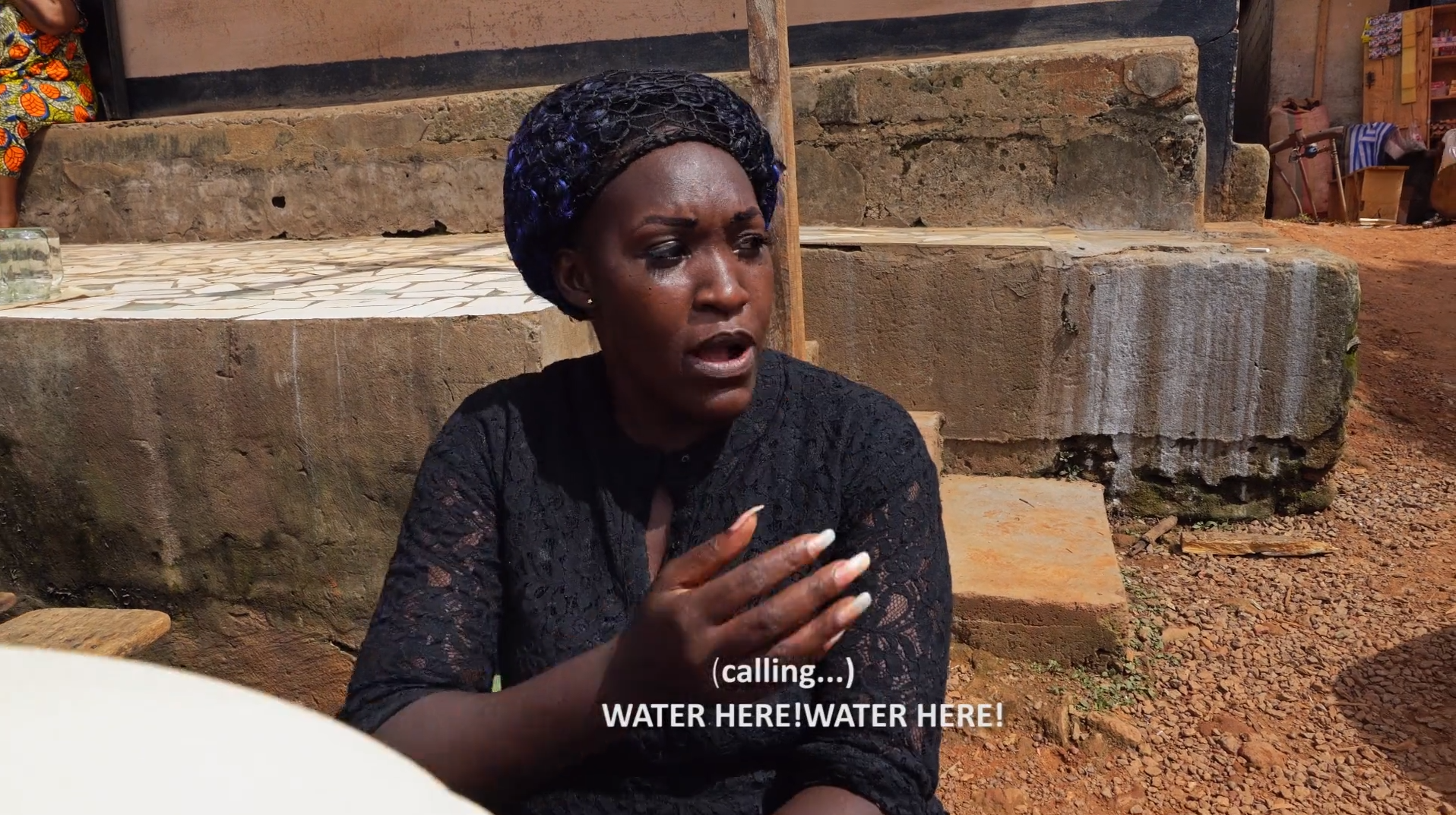
Mami Wata de Philomene Stephanie, micro documental finalista del We Art Water Film Festival 5.
The lack of water in Yaoundé is a common problem in many Cameroonian cities, and Aline sometimes has to wait to collect rainwater to go out to sell. In 2019, Philomene Stephanie was also a finalist in the We Art Water Film Festival 3 with another short about the situation in Cameroon. In Utopia, she showed us a girl’s struggle to find water in unhealthy wells near her neighborhood due to constant water cuts.
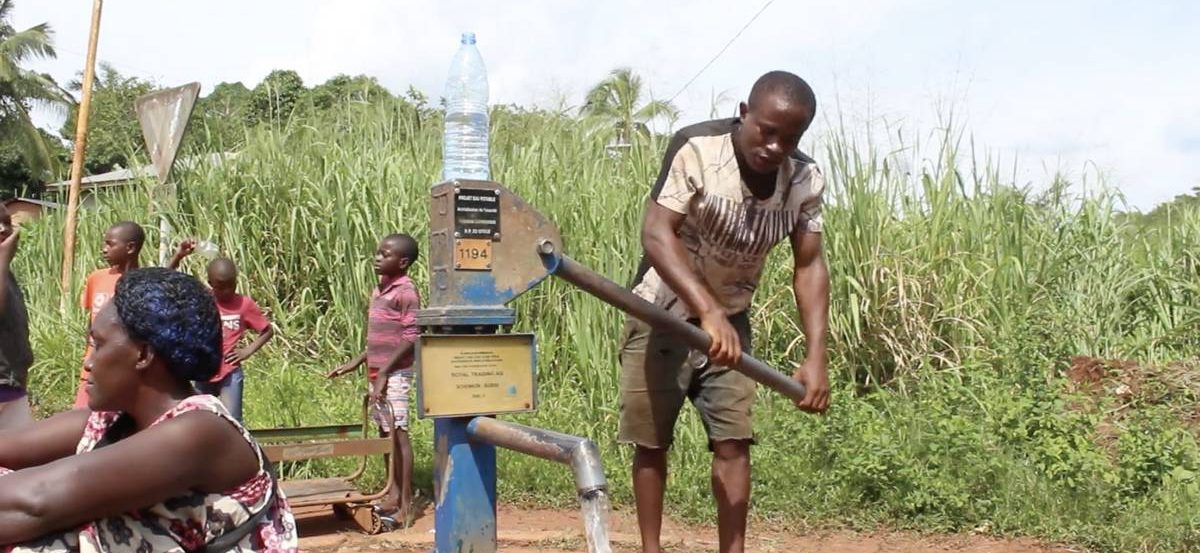
The lack of water in Yaoundé is a common problem in many Cameroonian cities, and Aline Assomo (Mami Wata) sometimes has to wait to collect rainwater to go out to sell.
Cameroon cannot provide water
Cameroon is a country with severe deficiencies in access to water. JMP data show that it is one of the few African countries where the situation has not improved in the last few years. In 2020, in rural areas, 3.4 million people had unimproved access to water, i.e., they obtained their water from unprotected sources, and more than 1.54 million used water from surface sources, such as rivers, ditches, or ponds. These data showed a slight decline compared to 2015 when the access to surface sources was the resource of 1.53 million Cameroonians.
In urban areas, the migration of farmers like Mami Wata does not end. It has worsened the situation in the suburbs that receive thousands of displaced people every year: in 2015, around 125,000 people in Cameroonian cities used surface waters, and in 2020 this figure had increased to almost 160,000, while 588.000 still had unimproved access.
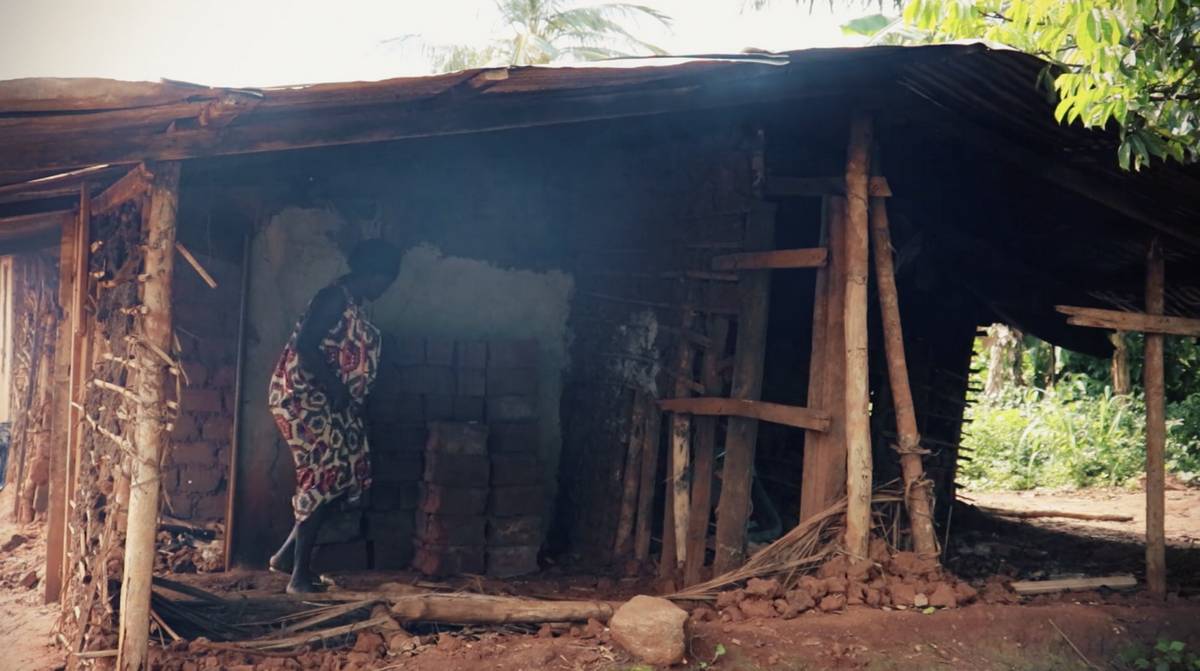
In 2020, in rural areas, 3.4 million people had unimproved access to water, i.e., they obtained their water from unprotected sources.
The different climatology of a miniature Africa
Cameroon is a country of enormous climatic and therefore, water contrasts. Its geographical situation and its elongated north-south extension mean that its northern tip reaches the semi-desert area of Lake Chad, overlooking the Sahel. At the same time, in the south the lush equatorial forest develops. For this reason, it is known as a “miniature Africa.” The variation in rainfall gives an idea of the contrast: 500 mm (liters) in the far north and 10,000 mm in the south.
Water shortages in the north have increased recently. Last August, a wave of violence broke out between pastoralist, riverine fishing, and farming communities over access to water resources. This is yet another “water war” that threatens to multiply in some of the world’s most water-stressed areas. Drought, exacerbated by climate change, is advancing desertification from north to south. In the Sahelian region, where average temperatures are rising 1.5 times faster than in the rest of the world, the World Bank estimates that 80% of agricultural land is already degraded.
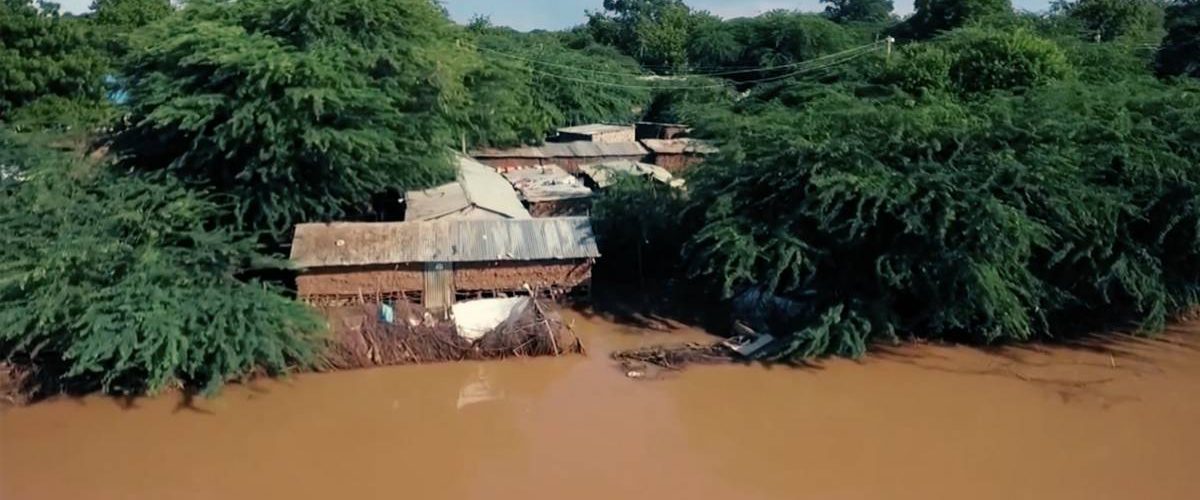
Aline’s life was cut short in 2016 when a flood swept away her husband and washed away their house, destroyed their vegetable garden, and killed the livestock.
A mother for raising awareness
Mami Wata is aware of the seriousness of the climate threat to her country and to the planet. She is one of the victims of this situation and wants to use her story to raise awareness of the importance of taking care of water and fighting climate change. Cameroon and sub-Saharan African countries are among the most vulnerable, while paradoxically contributing the least to global warming. Mami Wata’s resolution is encouraging; awareness of the problem must be raised in these countries so that their civil society pressures their governments to unite in demanding international aid.


